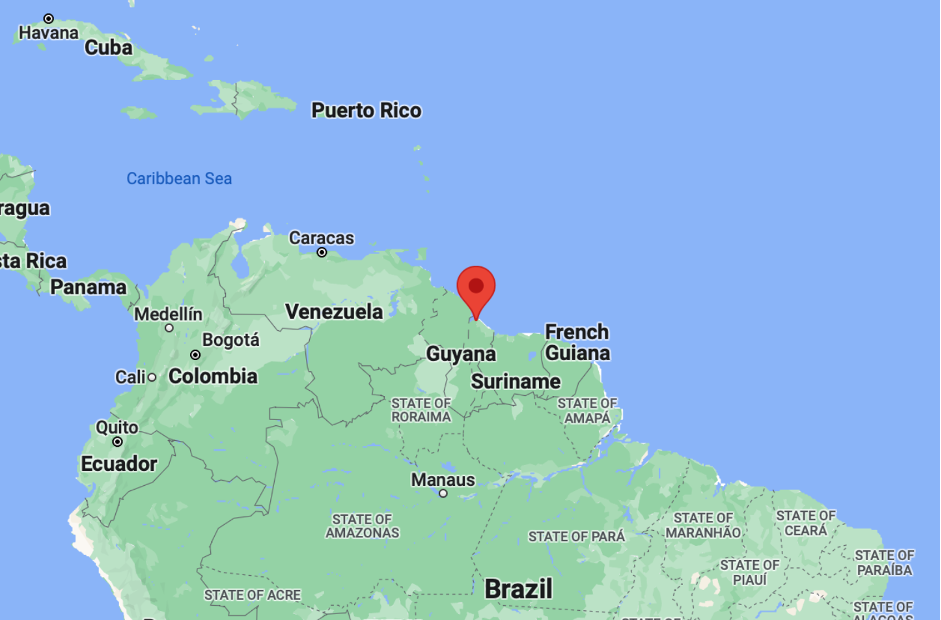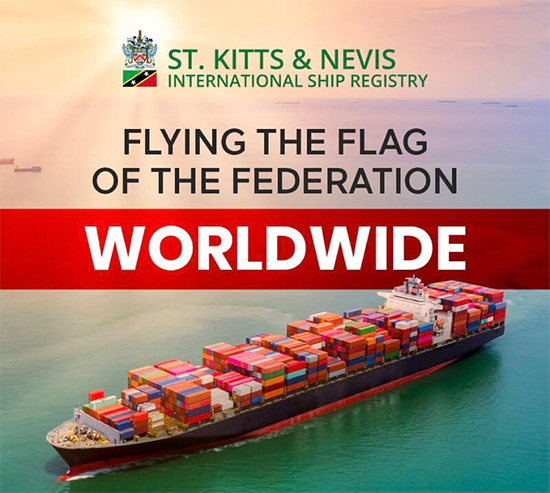Twelve Indian seafarers were turned away at a South American airport as they tried to begin their journey home after working on board a bulk carrier for between nine and 13 months. The reason: their boss had issued them fake flight tickets.
Under the Maritime Labour Convention (MLC 2006, as amended), sometimes called ‘the Seafarers’ Bill of Rights’, a shipowner is required to cover the costs of getting crew to and from their vessel.
The crew of the Med Sea Lion (IMO 9350331) were understandably shocked, then, to discover that instead of being repatriated home at the end of their long contracts in March, they were effectively stuck in Guyana – a country nearly 14,000 km from home.
For six weeks the seafarers waited anxiously, unable to get on with their lives and fast running out of money.
For most of that time, there was no response from the ship’s owners, Sea Lion Shipping Co. The seafarers’ former employer effectively ghosted them. A few weeks into their plight, one of the crew paid for his own ticket home. Not all could afford a quick escape.
However, the crew did start to receive support from others. Enquiries demanding their repatriation were issued, first from the seafarers themselves and then by the ship’s flag State, St Kitts and Nevis, and then by the vessel’s insurer Thomas Miller Speciality, and most impactfully – from the International Transport Workers’ Federation (ITF).
Many shipowners know that once the ITF becomes involved in a case, and brings the strength of its more than 200 affiliated maritime unions and 130 ship inspectors present at ports around the globe, there can be nowhere to hide for irresponsible employers who shirk their obligations to crew.
Sea Lion Shipping was forced to repatriate the remaining 11 seafarers to India at the end of April.

But for the ITF, that’s not enough. Not anymore.
“Sea Lion Shipping Co now has to pay the crew for the period where their negligence forced these seafarers to wait around for the company to issue real flight tickets home,” said Steve Trowsdale, the ITF’s Inspectorate Coordinator who has been handling the case.
He said the guidelines accompanying the MLC placed an obligation on shipowners to pay crew’s wages between the day they sign off a vessel and the day they get home.

“Whatever the reason the fake tickets were issued in the first place, and regardless of the fact the company was made to honour their obligations to get the crew home in the end; the shipowner’s other responsibilities to crew remain. This includes to pay them in full for the entire period that the company didn’t get them home,” Trowsdale said.
Sea Lion tried to bully seafarers out of $24,000 wages
Documents given to the ITF can now reveal that Sea Lion Shipping tried to trick the seafarers again – this time into waiving their rights to wages they were due, in exchange for passage home.
The company said fresh, real tickets were conditional on the seafarers signing a legal waiver letter giving up their ability to pursue the outstanding wages, which totalled more than USD $24,000 by the time they went home.
Despite the cajoling and attempts and coercion, the seafarers stood firm. They heeded the advice of the ITF, demanding their rights – both to repatriation and to wages they were owed.
The company caved, and the crew are back home in India with their rights reserved. They are pursuing, with the help of the ITF, claims against the company for the money.
The ITF’s Steve Trowsdale said the industry should shun Sea Lion, after the company “First left the crew to rot for weeks without even word, which is bad enough. But then to try to force these desperate people to choose between the money they need or seeing their families again – that is cruel and likely illegal.”
“Sea Lion Shipping Co continues to behave disgracefully towards these seafarers. They clearly haven’t learnt their lesson. So the ITF and the industry must teach them one: that there is zero tolerance for frauds and bullies in the maritime sector.”

Questions for St Kitts and broken Flags of Convenience system
Trowsdale said the ITF would be writing about the case to the ship’s flag State, the country where it is registered to.
The federation will ask Saint Kitts and Nevis to investigate the shipowner and determine any breaches of the flag’s rules. If found in breach, Sea Lion Shipping Co should be barred from registering vessels to Saint Kitts and Nevis and any other flag.
Trowsdale will also be taking Saint Kitts and Nevis to task for a potential violation of its own.
As the regulator charged with ensuring the Maritime Labour Convention is adhered to aboard its ships, Saint Kitts and Nevis should have identified that five of the crew had working onboard the Med Sea Lion well past the end of their six-month contracts, a situation that is not allowed under the MLC.
Perhaps most seriously, one of the crew had been onboard for a total of 13 months at the time of the ticket debacle – a clear breach of the Convention’s one year maximum.
Tiredness and fatigue, which increase with extended periods onboard, had been proven as a contributing factor in marine accidents and increased injuries onboard.
By failing to address the situation, the flag State had endangered the lives of crew, those aboard passing ships, and the marine environment, he said.
“This is just the latest example of where the Flags of Convenience system has let down crew.”

END
Notes:
- Images of crew, the airport, etc. for free use by press, can be found here: https://we.tl/t-BJWzjzxRYq
Media contact: media[at]itf.org.uk
